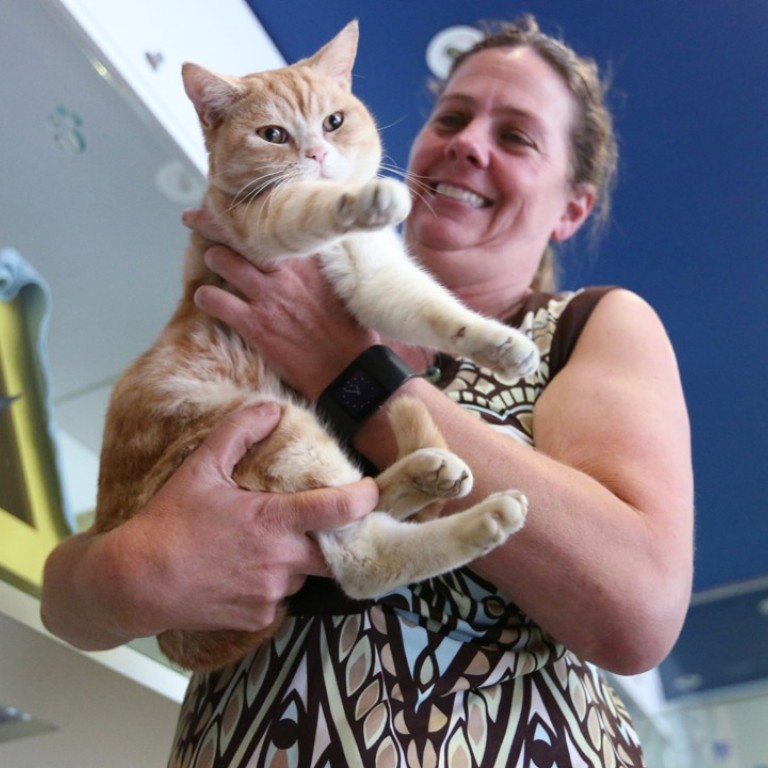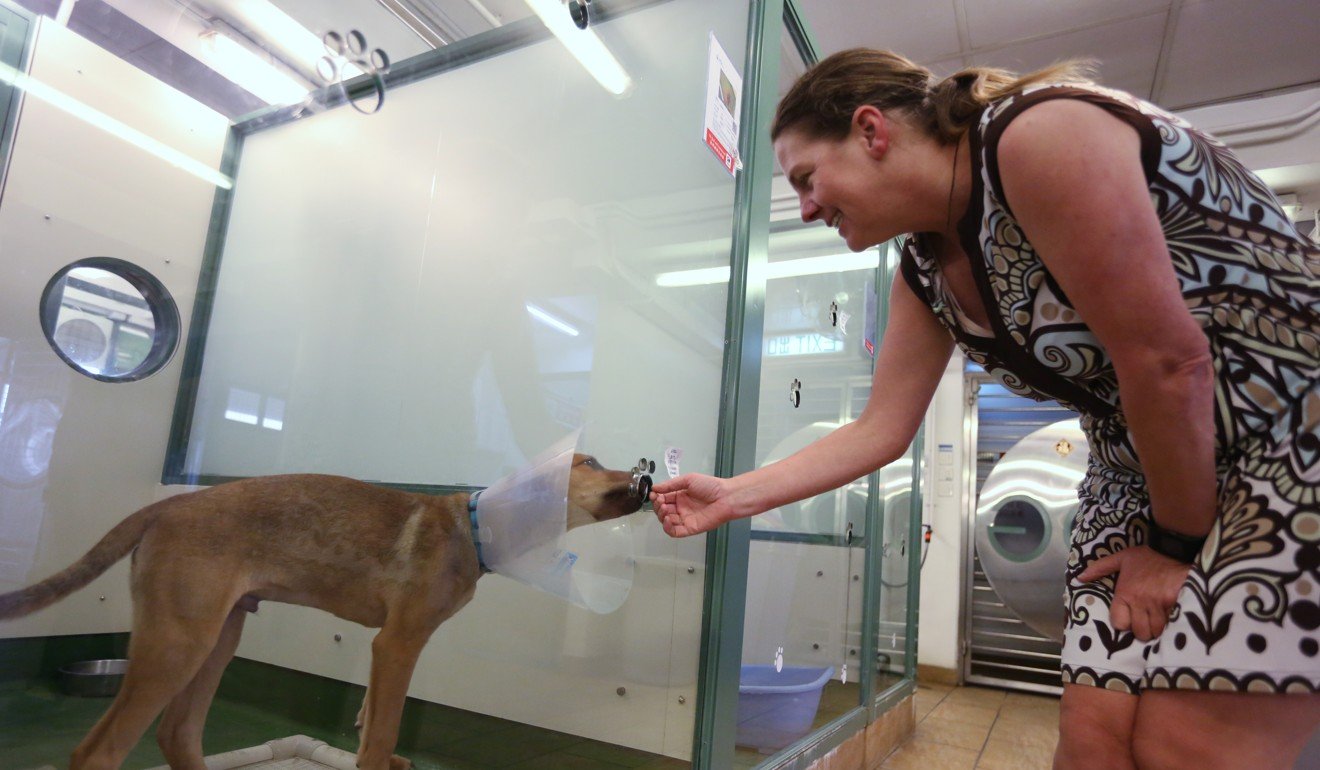
Paws for thought: Taking pets to work can relieve stress in frenetic Hong Kong
Fiona Woodhouse of the SPCA argues that animals can be therapeutic, but the practice of bringing pets to the office has simply failed to take off here
Pet-friendly offices aren’t a thing in Hong Kong. But maybe they should be, according to Dr Fiona Woodhouse, director of welfare at the Society for Prevention of Cruelty to Animals.
Woodhouse said pets could enhance well-being in the office environment. “Animals are therapeutic. They could have a positive impact.”
Leading the charge on the corporate front is Garage Society, a co-work company that has a pet-friendly policy in place at its office in Sai Ying Pun.
Housing different start-ups and organisations, the company feels that allowing employees to bring in their dogs serves as a good ice-breaker. In fact, a golden retriever called Mui Mui has become the “Garage Dog”.
However, this is not entirely new. Cats have for many years lived in workplaces like dried food shops in Sai Ying Pun and Western Market. They are thought to attract good fortune.
Stress is certainly a problem in Hong Kong. A 2015 survey by banking giant UBS found that out of 71 cities, Hong Kong had the longest working hours, clocking up an average of 50.1 hours per week.
In June 2015, a survey sponsored by the Occupational Safety and Health Council and the non-profit Federation of Youth Groups found that 60 per cent of 377 workers it surveyed suffered from high levels of stress.

Virginia Commonwealth University in the United States conducted an experiment in 2012 to monitor the impact pets had on workers’ stress levels.
The results indicated that staff who brought their pets to work reported decreasing levels of stress throughout the day – unlike those who did not do so.
Technology companies like Google and VMWare welcome employees’ pets. Businesses have initiated company-subsidised pet insurance and dog day care to attract recruitment among millenials – those said to be born between 1980 and 2000.
According to the Census and Statistics Department, millennials made up approximately 33 per cent of Hong Kong’s population in the middle of last year.
Overseas studies suggest that millennials are choosing pets over partners. An analysis by research body Pew Research Centre found that young Americans are half as likely to be married or to become parents than they were 50 years ago. But this has translated into higher rates of pet ownership.
Some 75 per cent of Americans in their 30s own dogs and 51 per cent own cats. In the United States, 50 per cent of the overall population own dogs and 35 per cent have cats, according to a survey conducted by market research company Mintel.
Strict building restrictions and public housing laws in Hong Kong bar domestic animals such as cats and dogs from many flats. This means many workers in the city do not have the option of bringing pets to work, if they had the choice.
Mentioning these drawbacks, Dr Woodhouse observed that “Hong Kong’s current infrastructure doesn’t integrate animals into the workplace.”

